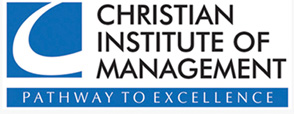Course on
Legal Requirements for Churches & NGOs
This course on legal requirements equips the participants to learn the legal framework of Churches and NGOs and how to track the changes.
Who is this course for?
- CEOs, Board Members responsible for ensuring compliance
- Staffs in the Legal / Admn Dept dealing with legal matters
- Pastors who want to know the legal rights and obligations
- Pastorate Committee members and others who would like to familiarise with the legal scenario of Church / NPO sector?
Duration of the Course
November 2024 to February 2025
Orientation & Live Webinars
- The course will have an orientation session (on 13 March 2023)
- The regular sessions will be held once a week (every Tuesday) from 6 PM to 7:30 PM via Zoom.
- There will also be a session for ‘Presentations by the students’ towards the end of the course.
- Admission to the course will be granted on a first-come-first-serve basis only.
Click here to view the Tentative Schedule.
Study Material
The self learning study materials are Bible oriented, would use conversational language and will have extensive case studies, exercises etc. to understand the subject in depth. Online live sessions would help the learner to gain update information and interaction with faculty member to clarify doubts.
Course Requirements & Evaluation
-
- Summary of the Chapters (20%)
A summary of 400 words for every chapter is to be submitted at the completion the lecture on each chapter. Learners are required to write the summary in their own words after reading through the course material.
- Summary of the Chapters (20%)
- Application Oriented Questions – AOQs (15%)
A learner has to participate in the AOQ forum by writing answers to the leading question given for every chapter (in 200 words). Apart from this, for at least 5 chapters, the learner must also respond in a minimum of 100 words to the answers given by other learners.Learners are encouraged to continue further discussions as well on the subject.
- Tasks (20%)
- Learners will be divided into groups and assigned tasks. The tasks prepared by the groups need to be submitted and also presented during the ‘Presentation Session’.
- Each group will be required to work on one task during the course, which would require approximately five hours of work.
- 10% of the total course marks is alloted for the task submission and 5% is allotted for the group presentation.
- Moreover, 5% of the total marks is alloted to peer evaluation by the learner’s group members regarding their contribution toward the task.
- Quiz (10%)
Learners are required to attempt a quiz at the completion of each chapter. Each quiz will consist of five questions and is to be completed in five minutes.
- Course Paper ( 20%)
- A major paper has to be prepared by a learner for each course.
- Learners are expected to refer to a minimum of 3 additional literature / articles / published books which could be printed or available online.
- They are expected to write reference notes for every quotation or ideas taken from a book or material and bring their analysis and application from their own context / organization. Even if an information is collected from an online source, the link of the source should be provided in the paper. Plagiarism is strictly prohibited. If found copying from other sources without providing reference, such papers will be rejected outright. If a learner is found doing it, he or she may be disqualified from continuing the course.
- Timely submission of assignments (10%)
Learners are encouraged to be active and are expected to complete the course requirements on-time. Failure to submit their assignments on time will result in loss of marks.
- Discussion forum (5%)
The learners are expected to interact with fellow learners in the discussion forums, in the form of asking doubts, responding to the views of fellow learners etc. Faculty members will also interact with learners through the forums to clarify any pertinent discussions. Active participation in the forum is expected from learners.
Course Curriculum
- The Need and Historical Background of Laws
- Indian Legal/Judicial System – Pre-Independence period
- Indian Legal/Judicial System – Post Independent India
- The Indian Constitution
- Fundamental Rights
- Minority Rights Human Rights
- Indian Christian Marriage Act 1872
- Special Marriage Act 1956
- The Indian Succession Act 1925
- The Divorce Act 1869
- Adoption
- Provident Fund Schemes
- Payment of Gratuity Act, 1972
- Employee State Insurance Corporation Act 1948
- Minimum Wages Act, 1948
- Procedure for Disciplinary Action
- Service Rules
- Policy on Sexual Harassment
- Sale of Immovable Property
- Mortgage of Immovable Property
- Lease of Immovable Property
- Gift of Immovable Property
- Transfer of Property from Trust to Trust
- Introduction
- Whom to Approach for Information?
- What information is accessible
- Steps for retrieving information
- Who is excluded?
- Central & State Information Commissions
- What is RTE
- Purpose of the Act
- Contents of the Act
- Forming an Organisation
- Society (Societies Registration Act 1860)
- Trusts (Indian Trust Act 1882)
- Company (Indian Companies Act 2013)
Certification
CIM would award the certificate on successful completion of the course.
Course Fee
The course fee is Rs. 5,900 (incl. GST) per candidate for the entire course
Faculty

Adv B D Das
Advocate, Cuttack

Adv Wilson Nathan
Advocate, Kohlapur

Cynthia Stepehn
Independent Researcher

Prof Sarasu Thomas
Professor of Law, National Law School of India University

Varghese Jacob
Consultant, CIM, Chennai
